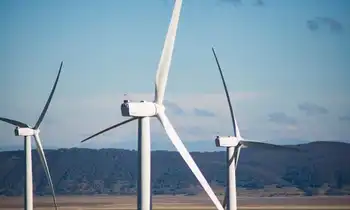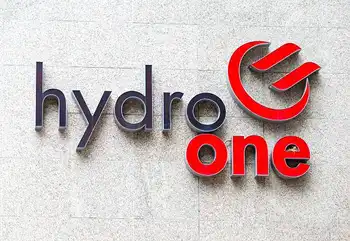Europe could be allrenewables by 2050
A supersmart grid powered by solar farms in North Africa, wind farms in northern Europe and the North Sea, hydroelectric from Scandinavia and the Alps and a complement of biomass and marine energy could render carbonbased fuels obsolete for electricity by 2050, said the report.
The goal is achievable even without the use of nuclear energy, the mainstay of electricity in France, it said.
Over all, about 50 percent of Europes energy demand is met with imported fuels.
Under socalled businessasusual scenarios, that share could increase to 70 percent in coming decades, according to several projections.
The switch to renewables is more than a matter of energy security, said the report, backed by research from the Potsdam Institute for Climate Impact Research and the European Climate Forum, both based in Potsdam, Germany.
Substantial and fairly rapid decarbonization... will have to take place if the world is to have any chance of staying within the 2.0 degree Celsius 3.6 degree Fahrenheit goal for limiting the effects of global warming, the report said.
Many scientists have warned that if global temperatures rise more than 2.0 C 3.6 F by centurys end, Earths climate system could spin out of control, unleashing human misery on an unprecedented scale.
Achieving allrenewables electricity will depend less on new technology than on revamping Europes legal and regulatory framework, the report argued: Most of the technical components are available in principle already today.
To become a reality, such a vision will require a regional power system based on a supersmart grid and the rapid scaling up of all forms of renewable power.
It also depends on a unification of the European power market, and its integration into the North African one, allowing for free trading of electricity between all countries, it said.
Policies would also need to incorporate mechanisms to disincentivize construction of new fossil fuel power plants, the report added.
The European Union is on track to meet its goal of supplying 20 percent of its total energy needs from renewable sources by 2020, the European Commission reported earlier this month.
Solar energy leader Spain, along with Germany and Austria, have forged ahead of their targets, more than compensating for Italy, which has lagged behind, the Commission said.
Related News

Trump's Pledge to Scrap Offshore Wind Projects
WASHINGTON - During his tenure as President of the United States, Donald Trump made numerous promises and policy proposals, many of which sparked controversy and debate. One such pledge was his vow to scrap offshore wind projects on "day one" of his presidency. This bold statement, while appealing to certain interests, raised concerns about its potential impact on renewable energy development and environmental conservation efforts.
Trump's opposition to offshore wind projects stemmed from various factors, including his skepticism towards renewable energy, concerns about aesthetics and property values, and his focus on promoting traditional energy sources like coal and oil. Throughout…





